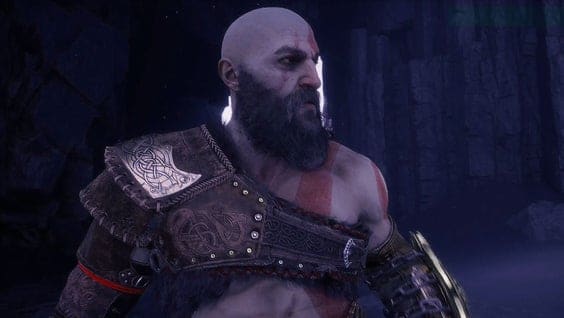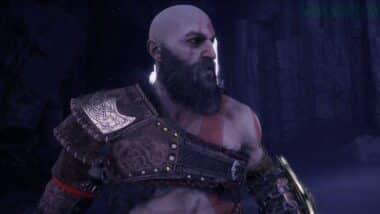The gaming world has been abuzz with the release of the Valhalla DLC, where God of War Ragnarok enthusiasts have uncovered striking resemblances to the epic Greek sagas within this Norse-themed expansion. As players delve deeper into the immersive world of Valhalla, they’ve noticed an unexpected connection, drawing parallels to the narrative elements, mythological depth, and character dynamics reminiscent of the revered God of War series. This revelation has sparked fervent discussions and debates among the gaming community, unraveling the profound influence and interplay of mythologies across gaming landscapes.

Exploring the Parallels Between God of War Ragnarok and Valhalla’s DLC: Unveiling the Resonance of Greek Saga Vibes
Genesis of Greek Saga Vibes: Development and Evolution
The origins of these Greek saga vibes trace back to the early stages of game development. The God of War series, rooted in Greek mythology, captivated audiences with its intense storytelling, visceral combat, and iconic protagonist, Kratos. Its success not only redefined the action-adventure genre but also set a benchmark for narrative depth intertwined with ancient myths. As the series progressed, the shift to Norse mythology in ‘God of War Ragnarok’ expanded the horizon of storytelling, offering a fresh perspective while maintaining the essence of legendary tales.
Valhalla’s DLC seems to echo this evolution by incorporating elements reminiscent of the Greek saga’s essence. The nuanced portrayal of characters, complex familial relationships, and the journey towards redemption bear uncanny resemblances to the emotional depth showcased in Kratos’ quest for atonement. The intertwining of Norse and Greek mythos in Valhalla’s DLC serves as a testament to the gaming industry’s ability to interlace diverse mythologies, creating an intricate tapestry of storytelling that resonates across cultures.
The Interweaving Narrative Threads: Mythological Convergence
The crux of the Greek saga vibes lies in the convergence of Norse and Greek mythologies within Valhalla’s DLC. The narrative intricacies reflect a harmonious blend of two distinct mythos, creating an immersive experience for players. Much like the Greek pantheon’s familial drama in God of War, Valhalla’s DLC introduces captivating characters with multifaceted relationships, mirroring the complexities found in Greek legends.
The interplay between gods and mortals, the exploration of themes such as betrayal, sacrifice, and redemption, echoes the essence of Greek sagas while seamlessly integrating into the Norse setting. The parallels between iconic figures from both mythologies offer players a sense of familiarity while embarking on an entirely new adventure. This convergence serves as a testament to the developers’ meticulous attention to detail and reverence for diverse mythologies, fostering an enriched gaming experience that transcends cultural boundaries.
The Gameplay Odyssey: Combat and Exploration
Beyond narrative elements, the Greek saga vibes manifest in the gameplay mechanics, drawing inspiration from the action-packed sequences synonymous with the God of War series. The visceral combat mechanics, characterized by brutal yet fluid combat, evoke reminiscence of Kratos’ legendary battles. Players find themselves immersed in adrenaline-pumping encounters that showcase the same intensity and strategic gameplay elements present in the God of War series.
Moreover, the exploration aspect in Valhalla’s DLC resonates with the adventurous spirit encapsulated in Greek mythology. The vast open-world environments, rich with lore and hidden secrets, beckon players to embark on a journey reminiscent of Kratos’ quests through ancient Greece. The incorporation of puzzle-solving elements and epic boss battles further solidifies the nostalgic connection, offering a familiar yet refreshing gameplay experience.
The Unveiling of Resonance: Community Discourse and Speculation
The revelation of these Greek saga vibes within Valhalla’s DLC has ignited passionate conversations within the gaming community. Forums, social media platforms, and fan communities buzz with speculation, theories, and analyses, exploring the intricacies of these parallels. Enthusiasts and critics alike engage in lively debates, dissecting every narrative beat, gameplay mechanic, and character interaction, uncovering the layers of storytelling nuances that bridge the gap between two distinct mythologies.
Exploration of Fan Theories: Mythological Crossovers
Fans delve deep into the lore, drawing connections between pivotal moments in God of War Ragnarok and the Valhalla DLC, theorizing potential crossovers or references that transcend the boundaries of Norse and Greek mythologies. Speculations about character cameos, mythical artifacts, or hidden Easter eggs from the God of War series in Valhalla’s DLC fuel the excitement and anticipation within the community. This exploration not only showcases the dedication of fans but also highlights the seamless integration of diverse mythologies, fostering a sense of interconnectedness within gaming universes.
Critical Analysis and Comparisons: Artistic Vision and Execution
Amidst the fervor of speculation, critics and gaming enthusiasts critically analyze the execution of Greek saga vibes in Valhalla’s DLC. Comparisons between narrative depth, character development, and thematic exploration in both franchises spark insightful discussions. The evaluation extends beyond mere similarities, dissecting the unique artistic vision and execution employed by developers to craft an experience that pays homage to the God of War series while establishing its distinct identity within the Assassin’s Creed universe.
Evolution of Gaming Mythos: Embracing Diversity and Innovation
The emergence of Greek saga vibes in Valhalla’s DLC signifies a broader trend within the gaming industry—a shift towards embracing diverse mythologies and narratives. This evolution goes beyond mere entertainment; it reflects a paradigm shift towards inclusivity, cultural appreciation, and innovation in storytelling. The convergence of Norse and Greek mythologies in Valhalla’s DLC serves as a testament to the industry’s willingness to explore uncharted territories and bridge cultural gaps, offering players a mosaic of experiences that transcend geographical boundaries.
Fostering Cultural Appreciation: Mythological Representation
The incorporation of diverse mythologies fosters cultural appreciation among gamers, providing a platform to explore and celebrate different belief systems, legends, and historical contexts. By immersing players in rich, multifaceted narratives drawn from various cultures, gaming experiences become not only entertaining but also educational and enlightening. Valhalla’s DLC exemplifies this by intertwining Norse and Greek mythologies, allowing players to unravel the tapestry of ancient legends while acknowledging the significance of diverse cultural narratives.
Innovation in Storytelling: Breaking Boundaries
Furthermore, the convergence of Greek saga vibes in Valhalla’s DLC represents a pivotal moment in gaming storytelling, breaking boundaries and paving the way for innovative narrative structures. The willingness to interweave disparate mythologies demonstrates a shift towards narrative experimentation, challenging traditional storytelling norms. This approach encourages developers to push the boundaries of creativity, fostering a gaming landscape where diverse mythologies intertwine, creating immersive worlds that captivate and resonate with players on a profound level.


